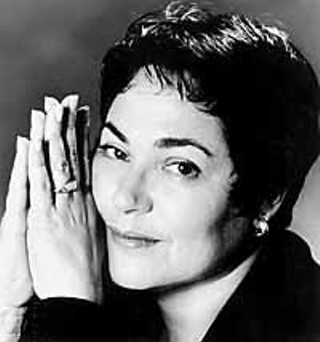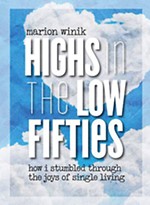Dangerous Liaisons
A Blind Man Can See What a Good Writer Amy Bloom Is
By Marion Winik, Fri., Aug. 25, 2000

Amy Bloom does not think it's weird to have a serious illness, or to be gay, or to drink too much sometimes, or to have your baby die, or to have a stepmother of a different race than you, or to be bi, or to have a child who's undergoing a sex change, or to adopt a severely handicapped boy, or to be a high school student whose mother is dying. Hard, yes, but weird, no. Her easygoing empathy for these situations and the characters who inhabit them make her stories an epiphany to read -- and her unfailing wit makes them a pleasure. She is ironic but not mean, lyrical but not prolix, emotional but unsentimental, modern but not trendy.
A new book of stories, A Blind Man Can See How Much I Love You, now joins her National Book Award-nominated first collection, Come To Me, and her novel, Love Invents Us. She spoke to us about it by phone from her summer vacation in Provincetown, Mass.
Austin Chronicle: I wanted to ask you, because it comes up so many times in this book, have you lost a child?
Amy Bloom: No.
AC: Well, have you ever lived in France?
AB: No.
AC: Have you ever had breast cancer?
AB: No.
AC: Have you ever been a middle-aged black man?
AB: No.
AC: So I guess you write fiction.
AB: I'm not at all drawn to memoir -- I can't imagine anything I would less like to do. I'm straightforward but I'm private. My parents are alive, and they're nice people. The truth is that I have a high tolerance for other people's grief. I can tolerate and sit with other people's pain and illness and loss, which are around us just as much as birth and weddings and finding a really great mascara.
AC: Last time I wrote about one of your books, I performed an experiment. It was my hypothesis that you could open the book randomly to any page and find a great sentence. I remember finding this one: "I wanted safety and quiet and books and I have them, but now it feels less like simplicity or even the successful marshalling of extremely limited resources, and more like the road show of The Grapes of Wrath." That still kills me.
So I was fooling around with that with this book and it worked again. I got "Rowing to Eden," in which you have husband and wife Charlie and Mai, who is sick with cancer, and Mai's lesbian best friend Ellie, who once had cancer. Mai says to Ellie, "When I'm better, we're getting you a girlfriend. Grace Paley's soul in Jennifer Lopez's body." Not only is that an excellent description of the perfect woman, but I think it may be Jennifer Lopez's best shot at immortality. But I wanted to ask you, are you a Grace Paley fan? Actually there are places in this book where the voice reminded me of her.
AB: I read and loved The Little Disturbances of Man maybe 20 years ago, but I think what you're talking about is a kind of urban East Coast-Eastern European diction; it's Tillie Olson, too. It's like my sister, who called me this morning at 7am. I picked up the phone and she said, "Hi, no one died, you got a great review in the Times." I wonder if non-Jews do this.
AC: I notice that in many of these stories, the focus is on some sort of triangulated relationship -- a couple of some sort, plus a third person, a friend or a lover or a child. Is this something you set up consciously?
AB: Oh God, no. Never even thought of it. In fact, I tell my writing students that idea-driven fiction has almost a 100% chance of failing or at least being tedious. Stories that are driven by their characters have a much better chance of working out. This is not to say that what you notice isn't there; it's just that it's not something I set up consciously.
AC: Well now that you hear this, does it seem right to you?
AB: It could be. I don't mean to make myself sound like an idiot savant, but I really don't think about these things -- not that I can't see that they are there.
Within any family, there are shifting alliances and evolving relationships -- as couples change, someone is brought in and someone is shifted out. There's a natural instability in a twosome that is often expressed by referring to a third person -- it can be an affair, it can be a child. The third person represents the need to do something; that's how people-driven fiction works. The characters don't just sit in their cars and do nothing. Their nature drives their actions as our natures drive ours.
AC: Which makes me wonder -- do you find that there's a lot of interaction between your work as a psychotherapist and your work as a writer?
AB: Actually, very little, except that both require you to be a good listener and a good observer.
AC: Yet you seem to know so much about such unusual life situations.
AB: What's so unusual, really? Only perhaps the transsexual story. Other than that, life is filled with these messy kinds of things -- the mother who threw a drink across the room, the uncle with the cross-cultural relationship, the terminal illness. In my world, people come in more than one color and more than one sexual orientation. People tell these stories all the time, but we don't usually pay much attention. You just wait five minutes, and they start talking.
AC: So you claim your people are ordinary people?
AB: Well, they're not uncommon, but they're not simple either. If some terrible thing happens to you in life and you are made the right way, you recover -- perhaps you have a scratch, or a limp, or maybe you use a wheelchair.
AC: Like the narrator of the last story, "The Story," who is, interestingly, named Amy. You can see who she used to be, before her child died, and who she has become. Because her neighbor is not a good mother, she sets out to ruin her life. What is it she says? "I want her skin like a rug on my floor, warm throat slit, heart still beating behind the newly bricked-up wall."
AB: Some people just do not recover. She is looking for solace both in her vengeful acts and in the story of her vengeance -- in an intellectual construction about the way things are.
AC: What about the story where Julia, a white woman, sleeps with her black stepson, Lionel, right after his father dies? That story is told in your first book and the family reappears, years later in their lives, in two stories here.
AB: The sex act between stepmother and son is unusual of course. But it's not unusual to love your kids, to make a big mistake, one terrible lapse in judgment, and then be forever trying to make things better.
AC: I love these characters, actually. The family is so rich -- not just Julia and Lionel, but Buster and his wife and their relationship, Julia's lesbian lover, Peaches, Lionel's French girlfriend and her lonely little boy. Where did this story start in your imagination?
AB: I listen to a lot of classical, pre-fusion jazz. I must have been listening to Johnny Hartman and John Coltrane, thinking about a whole list of jazz musicians who I think were essentially good men and great musicians but were not able to be the kinds of husbands and fathers they wanted to be. There was a jazz musician I once knew who would be out playing all night and then stay up 'til seven the next morning so he could feed his little boy breakfast. So from this comes the idea of the father. Then I was thinking about the kind of woman he might meet, and how you don't always get it right the first marriage. ... Once I could see him, see them, I could see Lionel Jr., who also is not the man he wants to be.
AC: It seems amazing to me that you, a white Jewish lady, can get so deep inside this character. He seems so right, and so real.
AB: I got a letter that I loved from a black woman reader, a psychologist, who said that often when reading white writers, even those she really likes, she gets the feeling that this is a landscape, this is a world in which the writer has never encountered me. In my work she said she saw middle-class black people who were whole, real people, not just sidekicks.
AC: Will there be more Lionel and Julia stories?
AB: Two more in the next collection.
AC: You mentioned your students -- what other things do you tell them?
AB: I tell them dialogue is not conversation -- it is conversation's greatest hits. (I wish I could remember who said that.) I tell them, "It really happened" is not a defense for anything in fiction. And I tell them you don't write fiction to get a date. The point is not to make the reader admire you, to think, "Oh my, she's so engaging." You want them to feel the story, engage with it, not you. It's not that you as a writer are anonymous, or that you don't work to make every sentence as good as possible. But there is a balance. The humans should not be overwhelmed by the narrative voice. They serve each other, they reinforce each other, they work together for the power of the story.
AC: When your character Julia says to her son, "I love you past speech," is that her talking, or is that you? Is that a more beautiful thing than people can actually say?
AB: I believe that in big and dire moments, we go either way. We either say something like, "Gosh," or we have these amazing moments of Shakespearean speech. Recently I was talking to a friend of my mother's. She's in her 80s, European born, and she tends to speak in a very formal, charming, drawing-room manner. And she said to me, "Oh Amy," she said, "old age is not for the weak."
All of us are capable, in real life, of saying things like that. If you just let the notes float there for a minute, you hear how much muscle and power and poetry there is in people's speech, in the things we say to each other every day. ![]()








